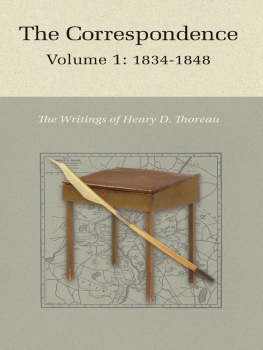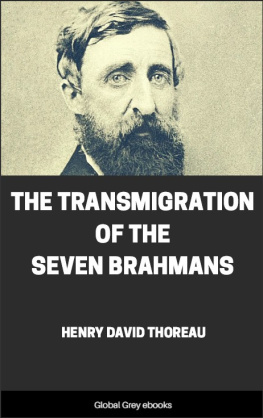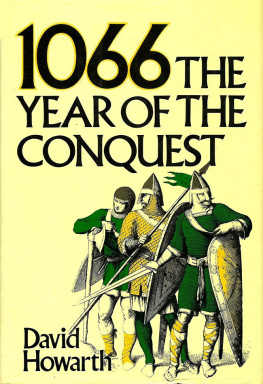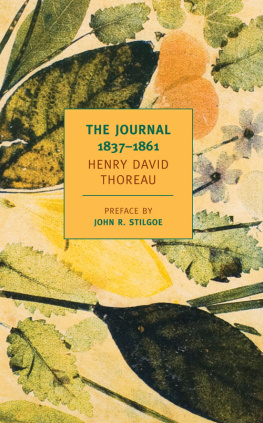The Leading Facts of History Series
The Leading Facts of English History
by D. H. Montgomery
"Nothing in the past is dead to the man who would learn how the present came to be what it is." Stubbs, "Constitutional History of England"
Revised Edition
Ginn and Company
Boston - New York - Chicago - London
Copyright, 1887, 1889, 1898, 1901, 1912, by D.H. Montgomery
Entered at Stationers' Hall
All Rights Reserved
313.8
The Athenaeum Press
Ginn and Company - Proprietors - Boston - U.S.A.
I dedicate this book to the memory of my friend J.J.M. who generously gave time, labor and valuable suggestions toward the preparation of the first edition for the press
Preface
Most of the materials for this book were gathered by the writer during several years' residence in England.
The attempt is here made to present them in a manner that shall illustrate the law of national growth, in the light thrown upon it by the foremost English historians. The present edition has been carefully revised throughout, and, to a considerable extent, rewritten.
The authorities for the different periods will be found in the Classified List of Books in the Appendix; but the author desires to particularly acknowledge his indebtedness to the works of Bright, Brewer, Gardiner, Guest, Green, Lingard, Oman, and Traill; to the source books of Lee and of Kendall; and to the constitutional histories of Stubbs, Hallam, May, and Taswell-Langmead.
The author's hearty thanks are due to the late Professor W. F. Allen, of The University of Wisconsin; Professor Philip Van Ness Myers, of College Hill, Ohio; Professor George W. Knight, of Ohio State University; and to a number of teachers and friends for many valuable suggestions which they have kindly made.
David H. Montgomery
Contents
Leading Dates xviii
Period
I. Britain before Written History began
II. The Geography of England in Relation to its History
III. Roman Britain; A Civilization which did not civilize
IV. The Coming of the Saxons[1]; the Coming of the Normans
V. The Norman Sovereigns[1]
VI. The Angevins, or Plantagenets; Rise of the English Nation[1]
VII. The Self-Destruction of Feudalism
VIII. Absolutism of the Crown; the Reformation; the New Learning[1]
IX. The Stuart Period; the Divine Right of Kings versus the Divine
Right of the People
X. India gained; America lostParliamentary ReformGovernment by the
People
A General Summary of English Constitutional History
Constitutional Documents
Genealogical Descent of the English Sovereigns[2]
A Classified List of Books
Special Reading References on Topics of English History
[1] Each of these six Periods is followed by a General Reference Summary of that period. See pp. 43, 71, 141, 174, 230, 316 [2] For special Genealogical Tables see pp. 124, 140, 161, 172, 179, 207, 323
Suggestions to Teachers
The writer of this brief manual is convinced that no hard-and-fast rules can be laid down for the use of a textbook in history. He believes that every teacher will naturally pursue a system of his own, and that by so doing he will get better results than if he attempt to follow a rigid mechanical course which makes no allowance for individual judgment and gives no scope to originality of method.
The author would simply suggest that where time is limited it might be well to omit the General Reference Summaries (see, for instance, p. 43) and to read the text as a continuous narrative. Then the important points in each day's lesson might be talked over at the end of the recitation or on the following day.
On the other hand, where time permits a thorough course of study, all of the topics might be taken up and carefully examined, and the General Reference Summaries may be consulted by way of review and for additional information. The pupil can also be referred to one or more books (see the Classified List of Books in the Appendix) on the subjects under consideration.
Instead of the teacher's asking a prescribed set of routine questions, the pupil may be encouraged to ask his on. Thus in undertaking the examination of a given topicsay, the Battle of Hastings (SS69-75), the issue of the Great Charter (SS195-202), or "The Industrial Revolution" and Watt's invention of an improved Steam Engine (S563)there are five inquiries which naturally arise and which practically cover the whole ground.
These are: 1. When did the event occur? 2. Where did it occur? 3. How did it occur? 4. What caused it? 5. What came of it? It will soon be seen that these five questions call attention first to the chronology of he event, secondly to its geography, thirdly to the narrative describing it, fourthly to its relations to preceding events, and fifthly to its relations to subsequent events.
The pupil will find that while in some instances he can readily obtain answers for all of these inquiries,for example, in the case of the Great Charter,in other instances he will have to content himself with the answer to only a part of the questions, perhaps, in fact, to only a single one; nevertheless the search will always prove instructive and stimulating. Such a method of study, or one akin to it, will teach the pupil to think and to examine for himself. It will lead him to see the inevitable limitations and the apparent contradictions of history. It will make him realize, as pehaps nothing else can, that the testimony of different writers must be taken like that of witnesses in a court of justice. He will see that while authorities seldem entirely agree respecting details, they will generally agree in regard to the main features of important events. Last of all, and best as well as last, these five questions will be found to open up new and broader fields of inquiry, and they may perhaps encourage the pupil to continue his work on some subject in which he becomes interested, beyond the limits of the textbook and the classroom.
Pursued in this way, the study of history will cease to be a dry delving for dead facts in the dust of a dead past. It will rouse thought, it will quicken the pulse of an intellectual life, and it will end by making the pupil feel the full force of the great truth: that the present is an outgrowth of the past, and that it is only when we know what men have done, that we can hope to understnad what they are now doing. D. H. M.
Leading Dates
(The most important constitutional dates are marked by an asterisk)
55. B.C. Caesar lands in Britain (S18) 449. A.D. Coming of the Saxons (S36) 878. Alfred's Treaty of Wedmore (S56) 1066. Battle of Hastings (S74) *1100. Henry I's Charter of Liberties (S135) *1164. Constitutions of Clarendon (S165) *1190. Rise of Free Towns (S183) 1204. John's Loss of Normandy (S191) *1215. John grants Magna Carta (SS198, 199) *1265. De Montfort's Parliament (S213) *1279. Statute of Mortmain (S226) 1282. Conquest of Wales (S218) *1295. First Complete Parliament (S217) *1297. Confirmation of the Charters (S220) 1336. Rise of Wool Manufacture (S236) 1338. The Hundred Years' War (S237) 1346. Batty of Cr'ecy; Cannon (S238) *1350. Origin of Trial by Jury (S176) 1378. Wycliffe's Bible; Lollards (S254) 1381. Revolt of the Labor Class (S251) 1390. Chaucer writes (S253) *1393. Great Act of Praemunire (S243) 1455. Wars of the Roses (SS299, 316) 1477. Caxton introduces Printing (S306) 1485. Battle of Bosworth Field (S315) 1497. Cabot discovers America (S335) 1509. The New Learning (S339) *1534. The Act of Supremacy (S349) 1536. The Monasteries destroyed (S352) *1549. Protestantism established (S362) *1554. Mary restores Catholicism (S370) 1558. Rise of the Puritans (S378) 1559. Act of Uniformity (S382) 1582, 1605. Bacon's New Philosophy (S393) 1587. Mary Queen of Scots executed (S397) 1588. Destruction of the Armada (S400) 1588. Rise of the English Navy (SS401, 408) 1589(?). Shakespeare's First Play (S392) 1601. The First Poor Law (SS403, 607) 1604. The "Divine Right of Kings" (S419) 1607. Virginia permanently settled (S421) 1611. The "King James Bible" (S418) 1622. First Regular Newspaper (S422) *1628. The Petition of Right (S433) 1642. The Great Civil War (S441) *1649. Charles I beheaded; the Commonwealth established (SS448, 450) 1651. Navigation Act (S459) 1660. Restoration of Monarchy (S467) *1660. Abolition of Feudal Dues (S482) 1665. The Plague in London (S474) 1666. Great Fire in London (S474) 1670. Secret Treaty of Dover (S476) 1673. The Test Act (S477) 1678. The Disabling Act (S478) *1678. Rise of Political Parties (S479) *1679. Habeas Corpus Act (S482) 1684. Newton's Law of Gravitation (S481) 1685. Monmouth's Rebellion (S486) 1687. Declaration of Indulgence (S488) 1688. The Great Revolution (S491) *1689. The Bill of Rights (S497) *1689. Mutiny Act, Toleration Act (S496) 1690. Battle of the Boyne (S500) 1694. National Debt; Bank of England (S503) *1695. Liberty of the Press (SS498, 556) 1697. Peace of Ryswick (S502) *1701. Act of Settlement (S497) *1707. England and Scotland united (S513) 1713. Peace of Utrecht (S512) 1720. The South Sea Bubble (S536) *1721. Rise of Cabinet Government (S534) 1738. Rise of the Methodists (S546) 1748. Treaty of Aix-la-Chapelle (S542) 1751-1757. English Conquests in India (S544) *1759. The English take Quebec (S545) *1776. American Independence (S552) *1782. American Independence acknowledged (S553) 1784. Mail Coaches begin to run (S566) 1785. "Industrial Revolution"; Canals; Watt's Steam Engine (S563) 1796. Vaccination introduced (S537) 1799. First Savings Bank (S621) *1800. Great Britain and Ireland united (S562) 1805. Battle of Trafalgar (S557) 1807. Steam Navigation begins (S565) 1812. War with America (S558) 1815. Battle of Waterloo (S559) 1819. The Six Acts (S571) 1829. Catholic Emancipation (S573) 1830. First Passenger Railway (S584) *1832. Great Suffrage Reform (S582) *1835. Municipal Reform (S599) 1837-1911. Colonial Expansion (S618) *1838-1848. Rise of Chartrists (S591) 1839. Postage Reform (S590) 1845. First Telegraph (S614) 1845. Irish Famine (S593) 1846. Repeal of the Corn Laws (S594) 1857. Rebellion in India (S597) 1858. Jews enter Parliament (S599) 1859. Darwin's Evolution (S606) 1861. The Trent Affair (S598) 1866. Permanent Atlantic Cable (S595) 1867. Second Suffrage Reform (S600) 1869. Partial Woman Suffrage (S599) 1869. Free Trade established (S594) 1870. The Education Act (S602) *1870. Civil Service Reform (S609) 1870. Irish Land Act (S603) 1871-1906. Trades Unions Acts (S616) 1884. Third Suffrage Reform (S600) *1888, 1894. Local Government Acts (S608) 1899. The Boer War (S623) *1906. Labor enters Parliament (S628) 1908. Old-Age Pensions (S628) 1910. Imperial Federation (S625) *1911. Parliament Act; Salary Act (S631)











